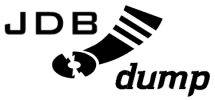

General
Installation
Jdbdump is a database archiver that uses jdbc.
It's Java Database Dumper which uses JDBC.
P.S. Name "jdbdbdump" sounds better :-)
Currently jdbdump has (partial) support of PostgreSQL and MySQL. Support for other database engines can be added by adding external jars with custom database plugins (called "connectors").
Jdbdump uses a binary format: Dump object is serialized and saved directly into the file, then all lines of data are saved the same way. The binary file can then be additionally compressed with zip or gzip.
No! You can also use jdbdump as a console application. To get details see user's guide.
If such problems appear, please check whether the connection data is correct, and if it is not, edit it. It may also turn out that your database type is not supported by our application, or that server has some temporary problems.
Of course it depends on the size of your database. If it is large, the process can be time consuming. That's why it is recommended to select the notification option, which informs you about the end of the process by sending email message.
You can find the backup file in the directory configured in the setting panel.
Of course you can. The name of the backup file consists (among other values) of the date of creation and that makes it easy to find the newest one.
Of course it depends on your database size. Since we can assume that you are going to use jdbdump with relatively large databases, we decided to provide compression mode. You can choose ZIP or GZIP format.
Yes, you can try. However we can not guarantee the success.
Yes, Jdbdump adds constrains at the very end after the creation and filling the tables.
If you are using Jdbdump through web interface you can find all your configured databases on the "database list". If you are using the console tool you have to create special files with these data.
Yes you can. Besides, you can also remove the database configuration.
No, you can also restore the database by uploading the file from a local computer.
Unfortunately, you can. If the server is tomcat, every reload or deployment means data loss. That's why we strongly recommend downloading backup files to your local machine.
Yes, it is not visible to other users via www.
Yes, dump files are not avaiable via url. However other users of the system on which Jdbdump is launched may find these files. Therefore you ought to check whether these files are readable only by tomcat users.
Yes, you should use Apache Tomcat 5 and Java version 1.5(JDK). These tools have been used with this project and work fine. Of course you can try to use for example some different servers.
Of course it is possible. That's why we strongly recommend using ssl enabled web server. This should prevent your data from dangerous spies.
Yes, there are. You can find some in documentation or you think about new improvement ideas on your own.
You need to install Java 1.5 JDK and Apache Tomcat 5 (GUI and distributed usage)
You need jdbdump.war package to unpack it to your Tomcat installation or deploy via Tomcat manager
Make sure you set properly tomcat-users.xml file (role systemadmin and a user with this role), or alternatively you created authority table with proper users when using MySql authentication
Try not standard app.properties location - Tomcat (depending on distribution) may want to search for properties in different directory we expect (try e.g. bin). By default it should be located in jdbdump/WEB-INF/classes directory.
Default location is /var/backups for linux and D:\jdbdump\ for windows (remember about the ending backslash! )
Check write permissions to /var/backups directory (or the directory you set your backups to be created). In windows this should not be a problem.
Try downloading different drivers (the newest drivers are supplied with jdbdump, however it is sometimes better to try older ones if you use older databases), and put them into jdbdump/lib/ directory.